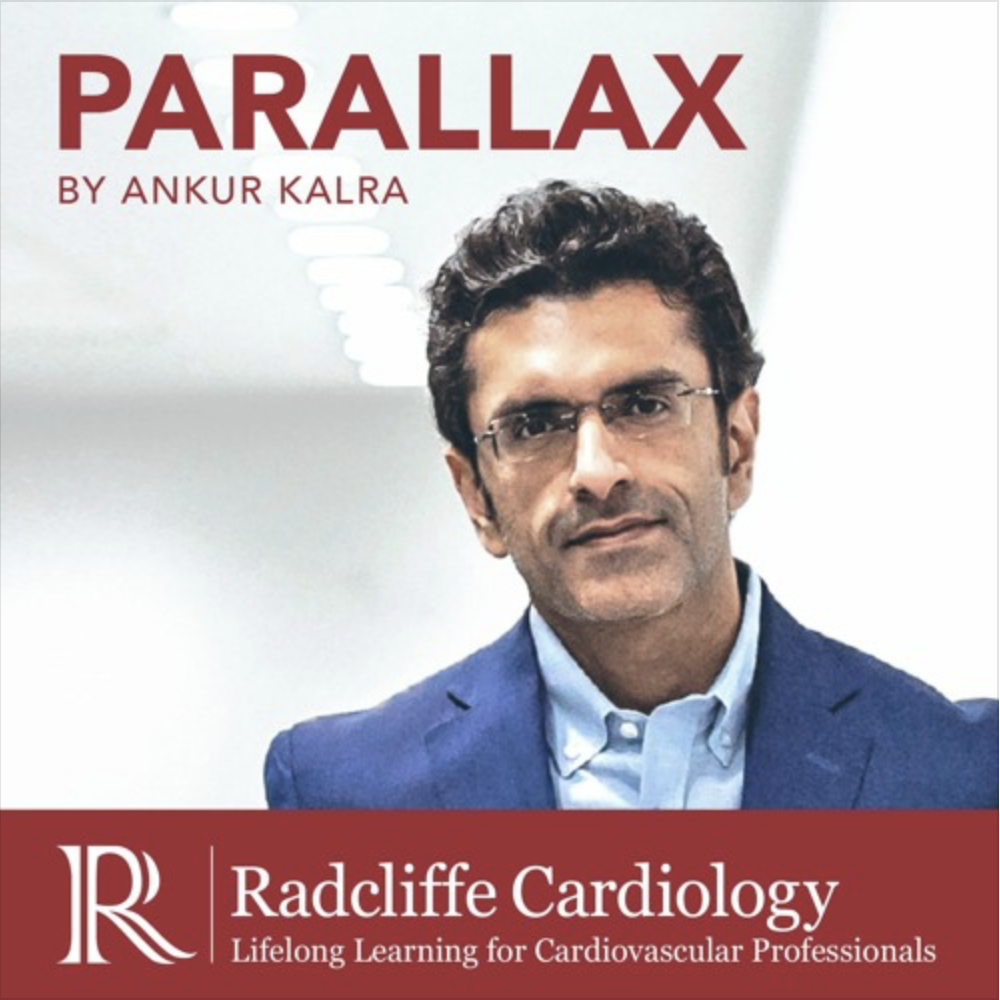
10: 2/3 Burnout & Resilience With Kavitha Chinnaiyan: How Mindfulness And The Ego Interact
What does mindfulness have to do with burnout? Is our definition of success driving our stress and anxiety? How can we channel our ego into something positive?
In our second episode on burnout and resilience, Kavitah Chinnaiyan, MD, and Ankur take a deeper dive into mindfulness and training the brain to move from Default-Mode to Task-Positive Networks. Kavitah is an award-winning author and, Cardiologist and Director of Cardiac CT Research at Beaumont Health, MI. Send us your thoughts to this episode for Ankur to share in future episodes: podcast@radciffe-group.com. Guest @ChinnaiyanMD.
Hosted by @AnkurKalraMD. Produced by @RadcliffeCARDIO.
Read MoreRead Less
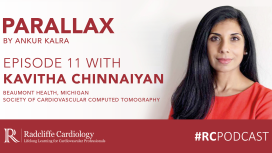
What are the key pillars of self-care and what do dirty windshields have to do with it? How can you take meditation “off the matt”? What has chronobiology and Ayurveda taught us about working with, rather than against, our circadian rhythm?
In the final episode of our burnout and resilience series, Kavitha and Ankur give you some practical tools of self-care to help you avoid burnout. Kavitah Chinnaiyan, MD, is an award-winning author and, Cardiologist and Director of Cardiac CT Research at Beaumont Health, MI. Send us your thoughts to this episode for Ankur to share in future episodes: podcast@radciffe-group.com. Guest @ChinnaiyanMD.
Hosted by @AnkurKalraMD. Produced by @RadcliffeCARDIO.
Read More
In the final episode of our burnout and resilience series, Kavitha and Ankur give you some practical tools of self-care to help you avoid burnout. Kavitah Chinnaiyan, MD, is an award-winning author and, Cardiologist and Director of Cardiac CT Research at Beaumont Health, MI. Send us your thoughts to this episode for Ankur to share in future episodes: podcast@radciffe-group.com. Guest @ChinnaiyanMD.
Hosted by @AnkurKalraMD. Produced by @RadcliffeCARDIO.
All Episodes

In one of her many posts on Instagram, we can see Dr Hafiza Khan holding a table summarising her reactogenicity after her second COVID shot. In the frame next to her is her son listing his own reactions. In this episode, Ankur asks Hafiza to talk about Instagram and reaching millennial and gen Z audiences, as well as the importance of developing and maintaining trust between different communities at a time of information overload.
Read More
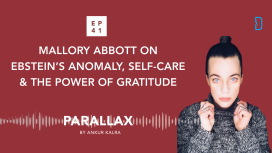
Mallory was not prepared when she underwent her first heart surgery in seventh grade: She was hoping to regain her stamina, instead she experienced what she describes as a loss of self. Mallory was born with a rare heart disease called a Ebstein’s anomaly.
Read More
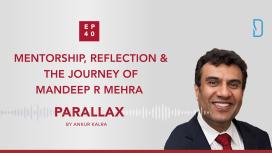
How does Dr Mehra think about building opportunities? What were his formative experiences? How does he think about the role of mentorship in medicine? What is Dr Mehra’s message to our listeners?Dr Mehra does not frame his experiences as failures or successes; he looks at all events with one question in mind: What can I learn from this?
In this week’s episode Ankur’s guest is Dr Mandeep R Mehra, Medical Director of Brigham Heart and Vascular Center and Professor of Medicine at Harvard Medical School.
Read More
In this week’s episode Ankur’s guest is Dr Mandeep R Mehra, Medical Director of Brigham Heart and Vascular Center and Professor of Medicine at Harvard Medical School.
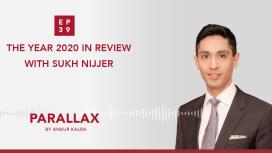
In the first Parallax episode of 2021, Ankur welcomed back Sukh Nijjer from Imperial College London to review the most impactful events and advances in cardiology from 2020.
Which COVID19 patients require risk stratification with a stress test? What are the take-home messages for physicians taking care of patients diagnosed with COVID19? What were the key trials of 2020? What can we learn from the negative results of the STRENGHT study? How have studies like STOP-AF influenced clinical practice?
Read More
Which COVID19 patients require risk stratification with a stress test? What are the take-home messages for physicians taking care of patients diagnosed with COVID19? What were the key trials of 2020? What can we learn from the negative results of the STRENGHT study? How have studies like STOP-AF influenced clinical practice?
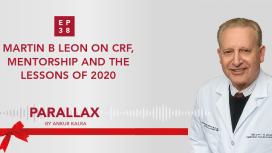
In the Season 2 finale, Ankur Kalra is joined by the legendary Martin B Leon, Professor at Columbia University, director of the TCT and chairman emeritus of the CRF.
What makes Dr Martin B Leon tick? What is his message to cardiologists and/or researchers at the beginning of their careers? How did the pandemic and his work as a clinician in New York change his perspective?
Read More
What makes Dr Martin B Leon tick? What is his message to cardiologists and/or researchers at the beginning of their careers? How did the pandemic and his work as a clinician in New York change his perspective?
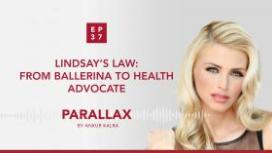
This week Parallax welcomed its first non-physician/researcher guest: health advocate Lindsay Davis. Lindsay, ballerina with ambitions to study at Julliard, was experiencing the symptoms of hypertrophic cardiomyopathy (HCM) from her early teens, but she had not been diagnosed until she was 17.
In this episode Ankur asks Lindsay about her treatment path. Lindsay recalls her own journey to taking control of her condition and the important role of information in patient adherence. Lindsay, former Miss Ohio, talks how she used the pageant to create awareness. Lindsay talks about work in state legislation and her plans for 2021.
Read More
In this episode Ankur asks Lindsay about her treatment path. Lindsay recalls her own journey to taking control of her condition and the important role of information in patient adherence. Lindsay, former Miss Ohio, talks how she used the pageant to create awareness. Lindsay talks about work in state legislation and her plans for 2021.

In 2020, women still only represent 16% of editorial boards.
US Cardiology Review journal, has recently seen a 7-fold increase in female editorial board members in response to journal-based strategic initiatives and the stellar work of USC editorial board leadership, Ankur Kalra (Editor in Chief) and Bill Gogas (Deputy Editor in Chief), who were keen to drive this change. With thanks to Dr Anastasia Mihailidou’s tenure as a new board member and her suggested nominees, ten new female board members have recently joined US Cardiology Review’s editorial board.
Read More
US Cardiology Review journal, has recently seen a 7-fold increase in female editorial board members in response to journal-based strategic initiatives and the stellar work of USC editorial board leadership, Ankur Kalra (Editor in Chief) and Bill Gogas (Deputy Editor in Chief), who were keen to drive this change. With thanks to Dr Anastasia Mihailidou’s tenure as a new board member and her suggested nominees, ten new female board members have recently joined US Cardiology Review’s editorial board.

One of the first things painted by the young Mike Gibson, today Professor of Medicine at Harvard, researcher and interventional cardiologist, was a cloud. Years later while painting angiograms Dr Gibson came up with the idea of myocardial blush: The blush was that cloud of dye in the heart muscle.
In this episode, Mike opens up about his childhood in Stilwell, Oklahoma. Ankur and Mike discuss how the inductive quality of art can complement the deductive principles of science. Mike recalls earlier stages of his career and warns about the blinding effect of the ego-driven, competitive culture of cardiology. Ankur asks Mike about fatherhood and about his role as an educator.
What does it mean to be fearless as a medical professional? How can you protect yourself from the emotional toll of the profession? What is Mike’s advice to early career cardiologists?
Sponsored by Edwards.
Read More
In this episode, Mike opens up about his childhood in Stilwell, Oklahoma. Ankur and Mike discuss how the inductive quality of art can complement the deductive principles of science. Mike recalls earlier stages of his career and warns about the blinding effect of the ego-driven, competitive culture of cardiology. Ankur asks Mike about fatherhood and about his role as an educator.
What does it mean to be fearless as a medical professional? How can you protect yourself from the emotional toll of the profession? What is Mike’s advice to early career cardiologists?
Sponsored by Edwards.

In this week’s episode Ankur Kalra asks Dr Suzanne J Baron, Director of Interventional Cardiovascular Research at Lahey Hospital & Medical Center: How do we measure the value of a novel technology?
During her interventional cardiology fellowship, Dr Baron became fascinated by the implementation of novel technologies. She earned her degree in Clinical Epidemiology and spent a year working at the FDA’s Device Evaluation unit.
In 2019 Dr Baron presented the results of her late-breaking trial, COAPT. Ankur invites Suzanne to discuss the economic analysis of the study and to give a short introduction to cost-effectiveness analysis. Suzanne provides an overview of the trial and they talk about the importance of understanding the value and benefits of new devices from both the patient and the health-economic point of viewpoint.
Read More
During her interventional cardiology fellowship, Dr Baron became fascinated by the implementation of novel technologies. She earned her degree in Clinical Epidemiology and spent a year working at the FDA’s Device Evaluation unit.
In 2019 Dr Baron presented the results of her late-breaking trial, COAPT. Ankur invites Suzanne to discuss the economic analysis of the study and to give a short introduction to cost-effectiveness analysis. Suzanne provides an overview of the trial and they talk about the importance of understanding the value and benefits of new devices from both the patient and the health-economic point of viewpoint.

In this week’s Parallax, host Ankur Kalra is joined by Charles (Chuck) Simonton, Vice President and Chief Medical Officer of Abiomed. Chuck talks about how his father’s leadership and service as a Methodist minister inspired him to become a doctor. He recalls the dawn of interventional cardiology: the birth of angioplasty and stenting. Drawing from his experiences as a trialist who worked with some of the most influential minds, he offers practical tips to young doctors. Finally, Ankur asks Chuck about the Impella device controversy and the recent decision of Abiomed to accelerate their clinical research.
How should you start building a research programme? What are Chuck Simonton’s thoughts on the relationship between doctors and the industry? What is Chuck’s message to young cardiologists?
Read More
How should you start building a research programme? What are Chuck Simonton’s thoughts on the relationship between doctors and the industry? What is Chuck’s message to young cardiologists?
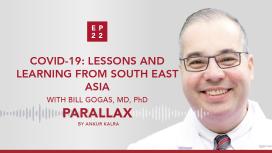
In these unprecedented times, we provide an early release episode to gain insight on dealing with the COVID-19 pandemic from Deputy Editor in Chief of US Cardiology Review, a BDG interventional cardiologist, Bill Gogas, MD, PhD practising in East Asia.
Hear Bill’s take on how East Asia responded to and successfully managed the pandemic and how they are now seeing a significant reduction in cases outside the epicentre. Hear how the strategy resulted in only 93 patients in Bill’s city of Nanjing, testing positive for coronavirus with a city population of 8 million.
Learn about effective responses, the importance of early control and how as a cardiovascular physician, your life and practice may be impacted by the virus.
Submit your question to Ankur via: podcast@radciffe-group.com.
Hosted by @AnkurKalraMD. Produced by @RadcliffeCARDIO.
Read More
Hear Bill’s take on how East Asia responded to and successfully managed the pandemic and how they are now seeing a significant reduction in cases outside the epicentre. Hear how the strategy resulted in only 93 patients in Bill’s city of Nanjing, testing positive for coronavirus with a city population of 8 million.
Learn about effective responses, the importance of early control and how as a cardiovascular physician, your life and practice may be impacted by the virus.
Submit your question to Ankur via: podcast@radciffe-group.com.
Hosted by @AnkurKalraMD. Produced by @RadcliffeCARDIO.
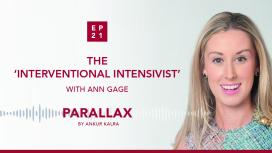
We can count on our fingertips how many interventional intensivists exist in the US.
In this episode Ankur Kalra, MD meets with Dr Ann Gage, Cleveland Clinic’s first ‘interventional intensivist’. She discusses her unique skill set, what it means to be an interventionalist in the cath lab but also an expert in cardiovascular intensive care and advocates why such a unique skill set and critical care training are required in today’s modern medicine.
Listen to this engaging discussion between them on the challenges of being a woman in cardiovascular medicine today.
Submit your question to Ankur via: podcast@radciffe-group.com. Hosted by @AnkurKalraMD. Produced by @RadcliffeCARDIO.
Read More
In this episode Ankur Kalra, MD meets with Dr Ann Gage, Cleveland Clinic’s first ‘interventional intensivist’. She discusses her unique skill set, what it means to be an interventionalist in the cath lab but also an expert in cardiovascular intensive care and advocates why such a unique skill set and critical care training are required in today’s modern medicine.
Listen to this engaging discussion between them on the challenges of being a woman in cardiovascular medicine today.
Submit your question to Ankur via: podcast@radciffe-group.com. Hosted by @AnkurKalraMD. Produced by @RadcliffeCARDIO.
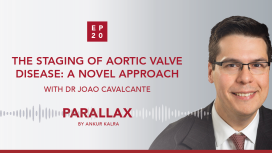
Dr Cavalcante meets with Ankur Kalra, MD to discuss his recent review published in US Cardiology Review 13.2; on a new aortic stenosis staging system that has important implications for clinical outcomes following aortic valve replacements to aid the treatment of aortic stenosis.
Listen to this, as well as an overview on his interesting childhood and his views on the future of cardiac imaging to treat TAVR.
Submit your question to Ankur via: podcast@radciffe-group.com. Hosted by @AnkurKalraMD. Produced by @RadcliffeCARDIO.
Read More
Listen to this, as well as an overview on his interesting childhood and his views on the future of cardiac imaging to treat TAVR.
Submit your question to Ankur via: podcast@radciffe-group.com. Hosted by @AnkurKalraMD. Produced by @RadcliffeCARDIO.
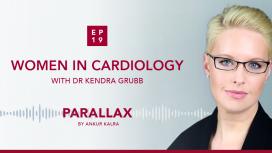
The first female cardiac surgeon qualified in the 1960’s. Today there are only 4.5% women in cardiology and only 4% in thoracic surgery. Ankur Kalra meets with Dr Kendra Grubb, the first women to be trained at the University of Virginia, US, on cardiothoracic surgery and the 250th board certified women in thoracic surgery.
Her recent post on social media went viral. It was a photo of an all-women surgical team carrying out a complex structural heart procedure. It had over 100,000 views and was seen by people in over 75 different countries. It’s clear from this online reaction, that now is the time for women to be recognised for the work they are doing in medicine.
Listen to this engaging discussion between them on the challenges of being a woman in cardiovascular medicine today.
Submit your question to Ankur via: podcast@radciffe-group.com. Hosted by @AnkurKalraMD. Produced by @RadcliffeCARDIO.
Read More
Her recent post on social media went viral. It was a photo of an all-women surgical team carrying out a complex structural heart procedure. It had over 100,000 views and was seen by people in over 75 different countries. It’s clear from this online reaction, that now is the time for women to be recognised for the work they are doing in medicine.
Listen to this engaging discussion between them on the challenges of being a woman in cardiovascular medicine today.
Submit your question to Ankur via: podcast@radciffe-group.com. Hosted by @AnkurKalraMD. Produced by @RadcliffeCARDIO.
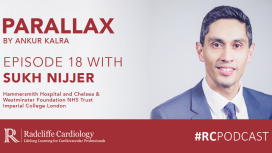
In our final episode of the year, Ankur has an long conversation with Sukh Nijjer from Imperial College London about the most impactful, exciting and controversial clinical trials of 2019. Sukh and Ankur also discuss how these trials might change practice in the future, and how practice patterns and decisions differ between the US and the UK. In light of an emerging trend of shared decision making between physicians of different specialities and patients with a vast amount of information at their fingertips, Sukh and Ankur examine what tools they use to reconcile the growing data from clinical trials.
Trials discussed in detail include those presented at the ACC in New Orleans: PARTNER 3 & Evolut Low Risk on TAVR/TAVI, and SAFARI & COAPT on radial vs femoral access; presented at the ESC in Paris: THEMIS and ISAR-REACT 5 on DAPT post-PCI, DAPA-HF on SGLT2i’s for heart failure, and COMPLETE on PCI of non-culprit lesions in STEMI; presented at TCT in San Francisco: TWILIGHT on DAPT post-PCI, and EXCEL at 5 years on PCI vs CABG in left main CAD; and finally, presented at AHA in Philadelphia: ISCHEMIA on medical vs invasive approaches in ischemic events. Submit your question to Ankur via: podcast@radciffe-group.com.
Hosted by @AnkurKalraMD. Produced by @RadcliffeCARDIO.
Read More
Trials discussed in detail include those presented at the ACC in New Orleans: PARTNER 3 & Evolut Low Risk on TAVR/TAVI, and SAFARI & COAPT on radial vs femoral access; presented at the ESC in Paris: THEMIS and ISAR-REACT 5 on DAPT post-PCI, DAPA-HF on SGLT2i’s for heart failure, and COMPLETE on PCI of non-culprit lesions in STEMI; presented at TCT in San Francisco: TWILIGHT on DAPT post-PCI, and EXCEL at 5 years on PCI vs CABG in left main CAD; and finally, presented at AHA in Philadelphia: ISCHEMIA on medical vs invasive approaches in ischemic events. Submit your question to Ankur via: podcast@radciffe-group.com.
Hosted by @AnkurKalraMD. Produced by @RadcliffeCARDIO.





